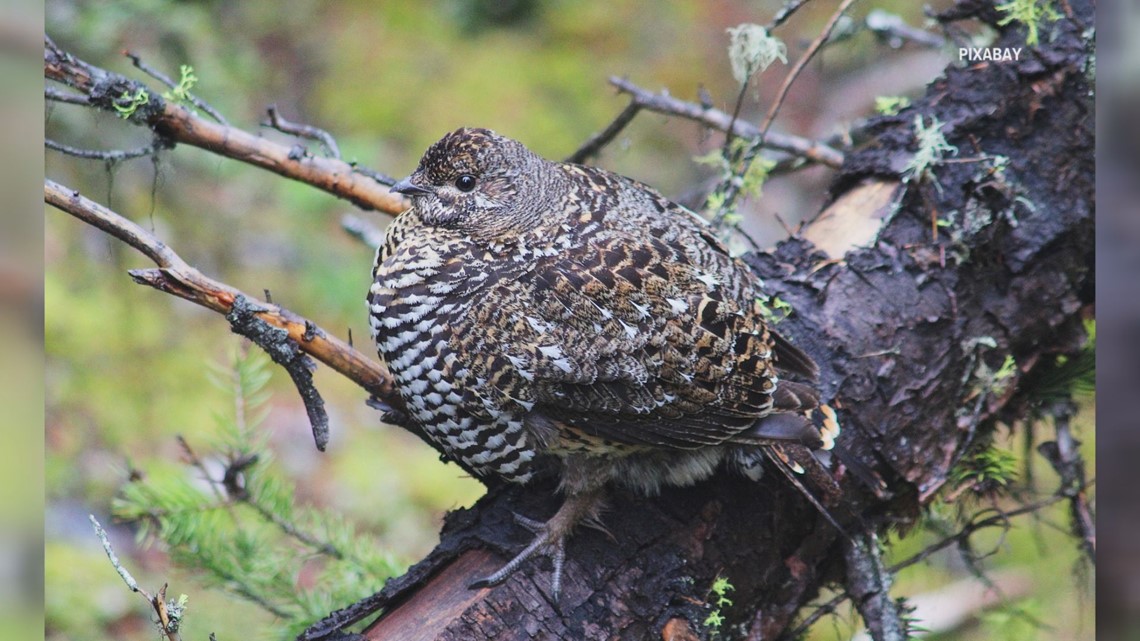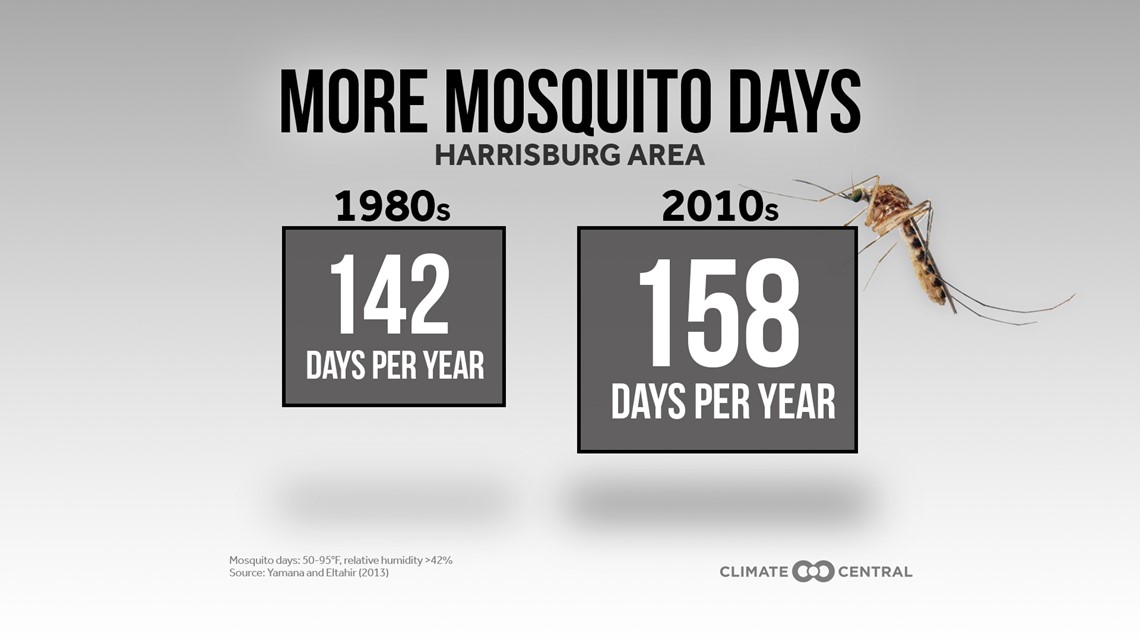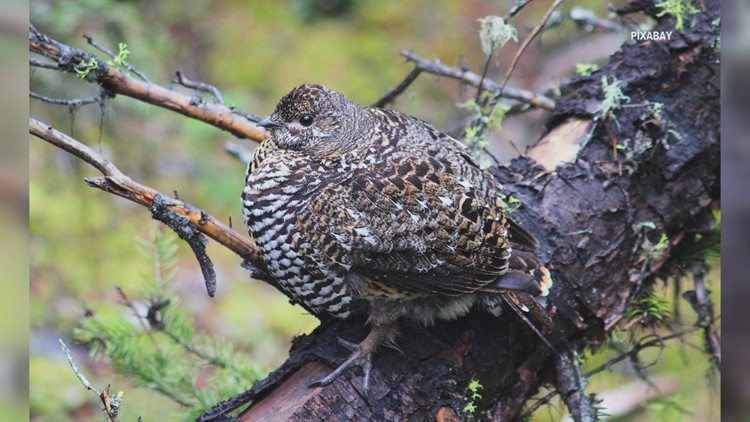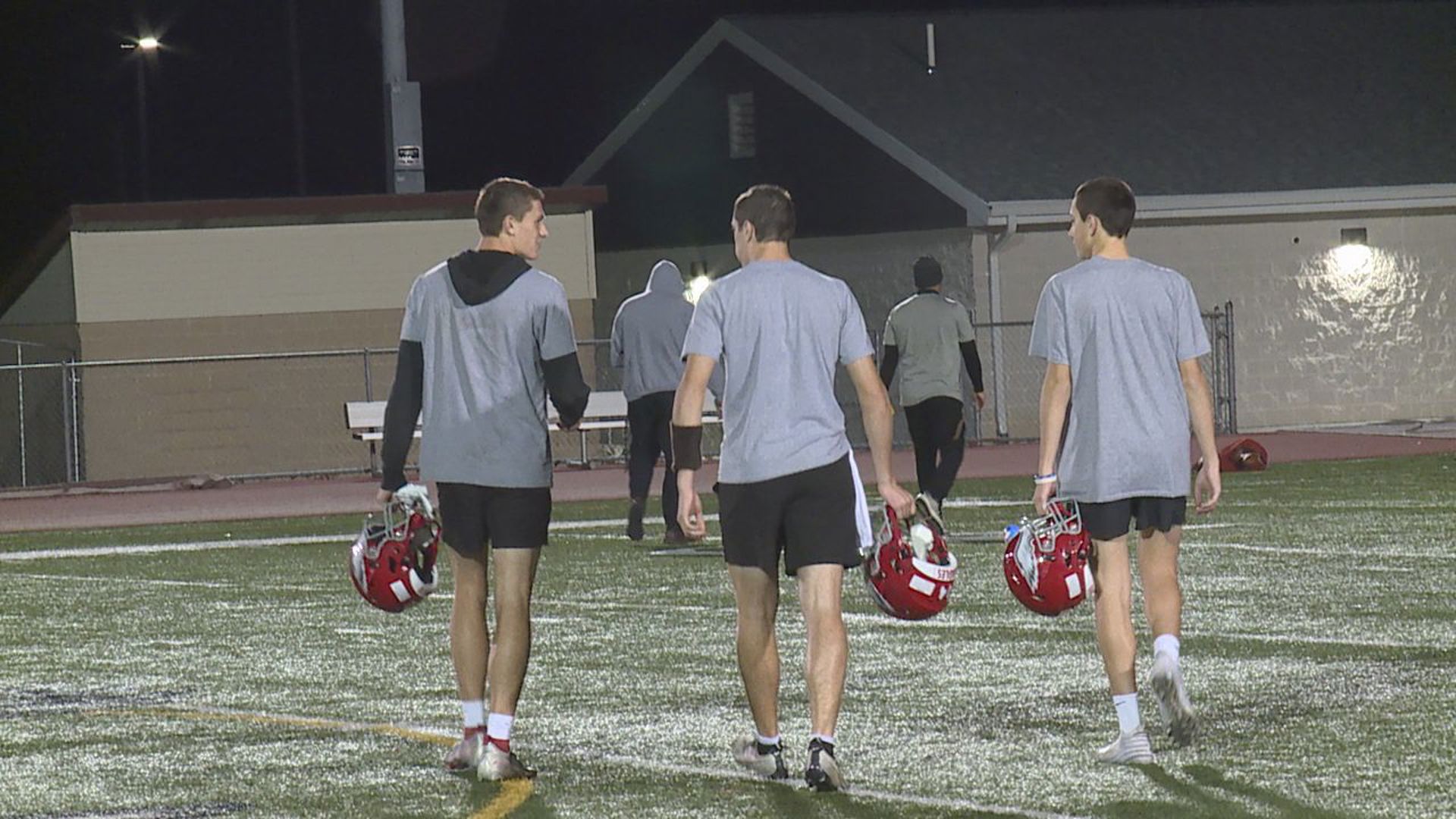HARRISBURG, Pa. — Pennsylvania’s state bird, the Ruffed Grouse, once had a booming population across the commonwealth. Its population has a natural ebb and flow, according to Lisa Williams, Division Chief for Wildlife Diversity at the Pennsylvania Game Commission.
“Grouse are funny in that their populations go through this boom and bust cycle where numbers will build up and then they sort of crash, and then they’ll build up again, and then they’ll crash, and it almost looks like a wave over time," says Williams.
However, in the early 2000s, the Game Commission noticed that that cycle started to break down.
“That really triggered Game Commission research to try and figure out what happened," Williams tells FOX43. "What significant issue had changed in the early 2000s that could be affecting this ancient population cycle across the state.”


The cause? West Nile Virus, the Game Commission determined.
As virus levels remained high, population levels continued to drop through 2018 of the ruffed grouse.
Thankfully, lower virus levels over the past two years have led to an increase in the bird’s population. In fact, in 2019 and 2020, population levels went up 30%.
“It’s showing that the birds are still capable of recovery, they’re still capable of, ya know, that boom, but we have to have mild disease years for them to be able to do that," says Williams.
These mild disease years could be harder to come by with our warming climate. Longer and warmer springs and falls lead to longer seasons for mosquitoes to breed and spread.
A study by climate central shows that over the past few decades, favorable mosquito days are growing in South Central Pennsylvania. More days of mosquitoes breeding could lead to more disease being spread.


The Pennsylvania Game Commission has recognized these challenges and is working to find the best habitat for grouse to hopefully return to their natural population cycles.
Williams tells Fox43 she’s hopeful that with people’s help, the grouse population will recover.
“If people can embrace the idea that of creating young forest habitat, then grouse will do their part," Williams tells Fox43. "They will put eggs on the nest and chicks on the ground and they will recover.”
Williams expects the grouse population to continue to rise this year due to a moderate virus year, however final numbers will not be known until the end of the season.


